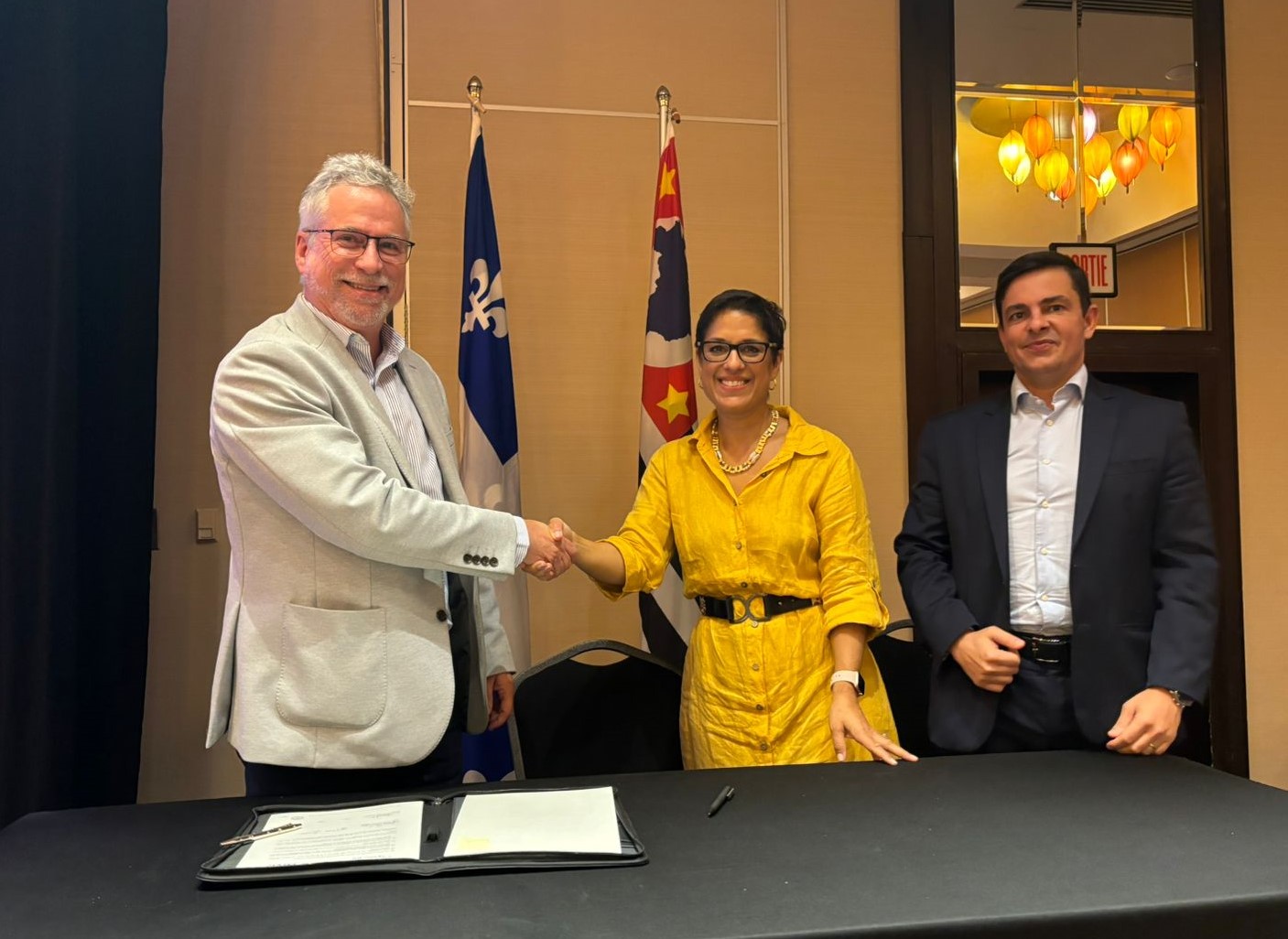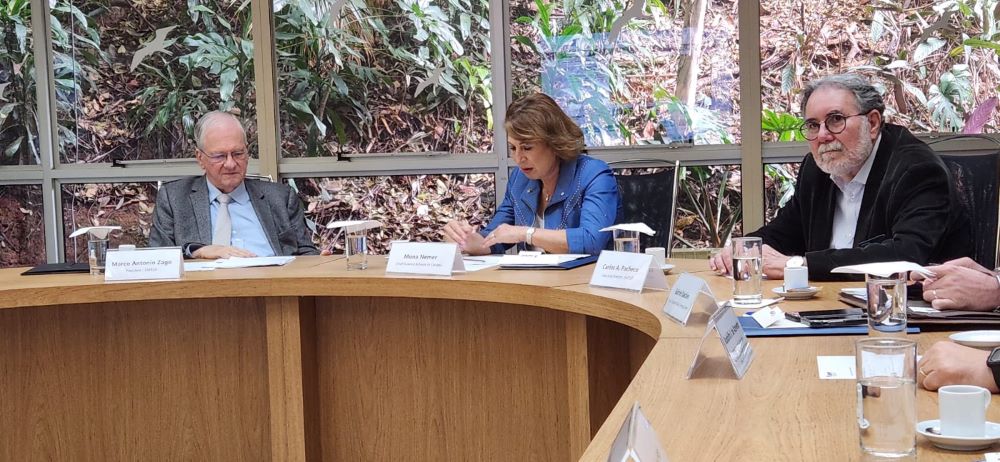


Marcio de Castro (left), Janice Bailey and Samo Tosatti (photo: Carolina Costa)
Published on 10/07/2024
Agência FAPESP – On September 16, in Canada, FAPESP signed a scientific and technological cooperation agreement with Fonds de Recherche du Québec (FRQ), a funding agency that supports the strategic development of research in mathematics, natural sciences and engineering. The five-year agreement enables the two institutions to award joint funding for projects conducted by scientists based in São Paulo state and Quebec, Canada’s second most populous province after Ontario, and the largest by area.
“I’m very proud to sign this agreement with our new partner in Brazil. International collaboration is crucial to research excellence, and this partnership will provide new opportunities to fund science and technology initiatives that will benefit both Quebec and São Paulo. I also want to thank Bureau du Québec, the Quebec government office in São Paulo, for helping to bring our organizations together to finalize this agreement,” said Janice Bailey, FRQ’s Scientific Director.
According to Marcio de Castro, FAPESP’s Scientific Director, a joint call for proposals will be negotiated by the two institutions. The areas of interest have yet to be selected.
The agreement was signed during the Scientific Conference of the 2024 Regional Leaders Summit (RLS-Sciences), held in Québec City. The Regional Leaders Summit (RLS) is a forum comprising political and academic representatives from seven regions with strong participation in global science production: Bavaria (Germany), Georgia (USA), Quebec (Canada), São Paulo (Brazil), Shandong (China), Upper Austria (Austria), and Western Cape (South Africa). RLS-Sciences seeks to leverage the unique strengths of the RLS network to support scientific research within and between these regions.
Besides Castro, the São Paulo delegation included Samo Tosatti, Chief International Affairs Advisor to the São Paulo State Government; Concepta McManus Pimentel, Manager of Research Collaborations for FAPESP’s Scientific Directorate; and Niels Olsen Saraiva Câmara and Leandro Colli, advisors to FAPESP’s Scientific Directorate.
“The keyword for the conference was ‘collaboration’. Many of today’s global challenges require networking in ways that regions or countries can’t manage on their own. This kind of networking is exactly what was on offer there, alongside discussion of joint projects between members of RLS. The importance of innovation supported by a strong science and technology base to create increasingly integrated ecosystems was a key topic in the discussion,” Castro told Agência FAPESP.
Connections between centers of excellence
Also as part of its effort to extend collaboration with Canada, on September 17 FAPESP’s top management welcomed a visit by Mona Nemer, the Government of Canada’s Chief Science Advisor. She was accompanied by Caroline Charette, Canadian Consul General in São Paulo; Gabriel Bastien, Vice Consul; and Cristina Hori, Trade Commissioner for Innovation, Consulate General in São Paulo. The delegation was received by Marco Antonio Zago and Carlos Américo Pacheco, President and CEO of FAPESP respectively.

: Zago (left), Nemer and Pacheco held talks at FAPESP (photo: Agência FAPESP)
“There are about 50 centers of excellence that represent the most robust research structure in São Paulo state and have long-term funding,” Zago said, referring to projects supported by FAPESP via its Engineering Research Center/Applied Research Center (ERC/ARC) and Research, Innovation and Dissemination Center (RIDC) programs. “I believe they’re the main candidates for strong cooperation with Canada. We could look for Canadian centers with similar characteristics and try to put them in touch.”
Another opportunity to strengthen the relationship, he proceeded, is the pursuit of joint research projects between universities in São Paulo and Canada. “Research collaboration was quite intense in the past but has declined in recent years, partly because of the COVID-19 pandemic,” he said, concluding with a mention of plans to hold a new edition of FAPESP Week in Quebec in 2025. The first Canadian edition of the event took place in Toronto in 2012.
“I really see many areas in which we can join forces and work together,” Nemer said. “Probably the most sustainable and productive collaboration will be between research centers of excellence in both countries. Many [of the centers we support] have collaborations with industry or other organizations such as hospitals, for example. So I think this kind of cooperation really can be very interesting.”
Other participants in the São Paulo meeting included Raul Machado Neto, advisor to the President of FAPESP; Rodolfo Azevedo, Coordinator General of Technologies and Partnerships in Innovation for the Scientific Directorate; Patricia Tedeschi, Innovation Manager; Isnard Magnus, advisor to the Research Collaboration Manager; and Rafael Andery, Executive Secretary of the Amazon+10 Initiative.
Source: https://agencia.fapesp.br/52958